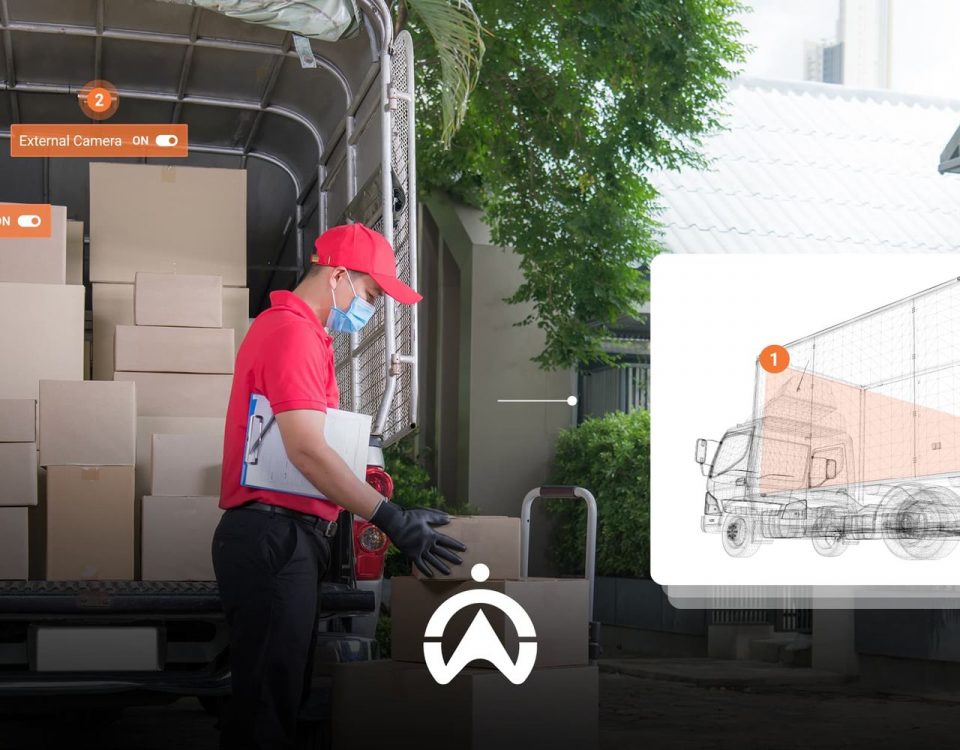How to Prevent Fuel Theft in Your Truck Fleet
Fuel theft and fraud rates in the road freight industry continue to be a concern. As a fleet manager, you will never know what drivers get up to while making deliveries. The only way to be sure is by bringing in technology that will give you more insight into what’s happening in and outside your vehicle, specifically, your fuel tank.
Today we look at anti-fuel theft tactics that you can apply to your fleet.
The impact of fuel theft on road freight transport
Earlier this year, an article by BusinessTech revealed that the price of unleaded 93 petrol increased by an astounding 119% over the last four years, similarly the same for unleaded 95 petrol and diesel. This interesting revelation might seem shocking in numbers but if we put more thought into it, we’ve all felt the impact of fuel price hikes. So where does that leave the average truck fleet manager? Under immense pressure to save as much as they can on fuel so they can make a profit while gaining a competitive advantage, that’s where. The increase in the value of fuel is what feeds into the rise in fuel theft and fraud.
Fuel is one of the biggest and most important fleet operational costs, without fuel there’s no business, and the more you pay for it, the less profit you make. With that said, fuel theft is a growing concern for many South African fleet businesses. It is a criminal offence that many don’t realise. Fleet managers need to look into why the fuel goes missing in the first place, how it gets emptied, and how to prevent it.
Fuel theft warning signs
- Frequent refuelling
- Sudden drops in fuel levels
- Discrepancies on receipts
- Fuel charge at an odd location
How to put an end to and prevent trucking fuel theft
Now let’s look at how you can prevent fuel theft in your trucking fleet:
- Invest in a smart fuel monitoring system
The first step to combating any fuel theft is a fuel monitoring system. A fuel monitoring system helps you manage fuel cards, keep track of consumption, use GPS technology for time and location accuracy, and generate detailed reports. If there’s a sudden drop, transactions don’t make sense or drivers are not refuelling at a set location, you will be the first to know.
- Get the best fuel card
A smart fuel card is a must-have as it’s the quickest way to trace transactions but make sure you pick a provider with enhanced security features. Do your research and compare the benefits of each provider. Look for cards with PIN protections, transaction limits and real-time monitoring. A good fuel card also offers discounts and has a variety of participating fuel stations nationwide. - Set daily spending limits and require pins
In addition to the above mentioned, know how many refills a driver will need per trip and how much each refill should cost, then set daily spending limits and make sure each driver has their own pin. - Have regular audits
Conduct periodic checks of fuel recipes, mileage logs, and maintenance records so you can identify any discrepancies, patterns or trends. This can be done by comparing transactions with fuel consumption data. The fuel transactions should be checked by two people so that one person can pick up an error that the other might have missed. Get external auditors where possible. - Anti-fuel theft device
Invest in fuel anti-theft devices such as fuel cap locks, fuel tank alarms and anti-siphon devices. These will prevent thieves from physically accessing the fuel in the tank. - Secure your parking
Install CCTV and security lighting in your parking area. The area where the trucks park after a shift should have good lighting and surveillance, preferably motion-detecting lights. The gates should always be locked as well.
- Defensive Parking
All trucks must be strategically parked in a way that blocks access to fuel tanks. Use other vehicles or solid structures like a wall, to block access to fuel tanks.
- Train your drivers
Drivers should know how to handle fuel cards and be aware of the scams going around so they can always be on the lookout for suspicious people. Training drivers also enforces accountability.

Know the different kinds of fuel theft and fraud
Here are a few examples of how thieves trick their way into getting your fuel:
- Skimming and cloning: A card skimmer is a device that is placed on top of a card reader to get data on a fuel card. The card details are then used to duplicate the card, and fill up other vehicles or make purchases at the fuel station. All the charges will go to the driver.
- Siphoning: Some thieves use their mouth and a hose or an automatic pump to drain fuel out of the tank and place it into a container. The fuel is then transferred from the container to another vehicle or it is sold.
- Multiple pump transactions: Some drivers collaborate with fuel station employees to merge numerous pump charges into one transaction on the fuel card. The additional pumps’ payments are then shared among them in cash.
- Neutral driving: This might be a shocker, but many truck drivers drive with the transmission on neutral to manipulate fuel usage by showing lower consumption through mileage. This form of fuel theft also increases vehicle wear and tear and can cause accidents.
- Unrecorded personal trips: In some instances, drivers manipulate fuel logs or use company fuel cards for personal vehicles.
- Odometer tampering: This is when drivers reduce, increase, or pause the mileage reading on the vehicle. Some old trucks have a simple system that can be easily manipulated, the modern-day trucks also have some exceptions in their onboard system that allow odometer tampering.
Digitise fuel validations with Cartrack’s fuel management system
Here are some of the features of our all-in-one fuel management system:
- GPS tracking
The first step to combating theft for your truck fleet is knowing where your trucks are at all times. Cartrack’s GPS tracking technology gives you full visibility of your fleet so you can notice any deviations that might be taking more of your fuel. - MiFleet
Let our cost management platform automatically review all your fuel transactions. Mifleet eliminates the manual admin that could take weeks to process. It matches fuel receipts with vehicle telemetry data such as location, litres and tank capacity. You’ll get alerts of any suspicious activity, so you can further investigate and take action. - Geofence
Create a virtual fence around your preferred fuelling stations so you can get alerts when your trucks enter or leave the stations. This ensures that your drivers only refuel at credible and cost-effective stations, that align with the set routes. - Fuel probes
Install a fuel probe, this is an electronic piece of hardware that is placed into your trucks’ fuel tanks and allows the monitoring of fuel levels in real time. It ensures high accuracy in readings and if there are any sudden drops, which could indicate theft, you’ll get an alert and be the first to know. - Driver ID tags
Instantly know which driver was using which truck through our advanced driver identification tags. This enforces driver accountability, meaning should there be any suspensions of fuel theft, drivers will know that they will be held responsible. - Fuel reports
Access detailed reports of refuelling events such as date, time, location and amount. Get fuel report graphs and fuel effect data which compares target ratings against vehicle category.

Choose the best fuel management software — Cartrack Swaziland
Our fuel management solution helps you easily detect fuel theft and maintain good fuel consumption levels by giving you accurate information about where the leaks come from. Contact us today to stop the theft, and put money back into your pockets.
Have a look at our frequently asked questions for more fuel-related tips
How to stop fuel theft from trucks?
Invest in fuel monitoring software and install fuel anti-theft devices such as tank alarms, fuel caps and an anti-siphoning device.
How do you manage fuel for the fleet?
Implement a fuel management system and incorporate telematics, prioritise vehicle maintenance, use fuel cards and keep an eye on transactions, monitor driver behaviour, and lastly train your drivers on fuel-efficient driving habits.
How to prevent gas stealing?
Ensure your vehicle is parked in a secure place and that the fuel cap is locked at all times.
How do I monitor fleet fuel consumption?
Invest in GPS telematics as fuel level sensors such as fuel probes. These will give you accurate readings and well as detailed insight. Additionally, telematics also monitors overall vehicle health and driver behaviour which are also important when looking to minimise fuel expenses.
For more details, contact us today.




